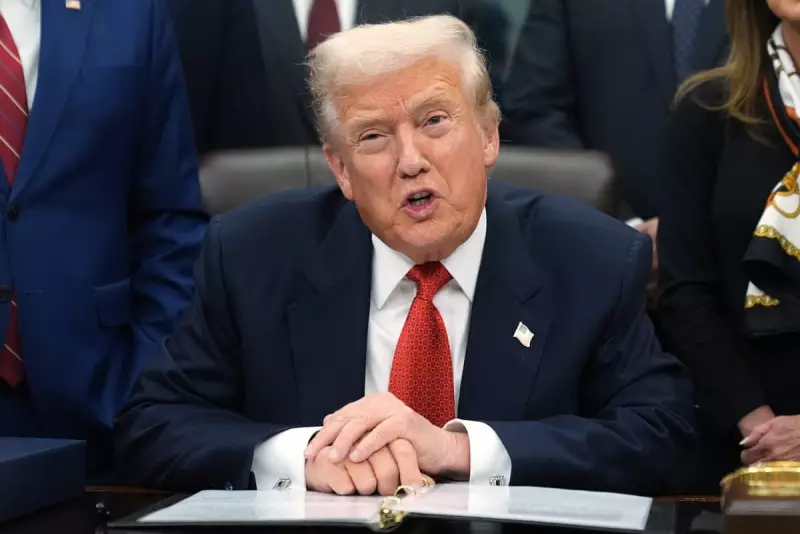
Trump's Pressure Campaign Fails as Epstein Files Vote Looms
Former President Donald Trump is confronting the prospect of a politically damaging congressional vote that could force the release of Jeffrey Epstein's files, following the failure of his attempts to pressure two Republican congresswomen into withdrawing their support for the measure.
The reported refusal of Lauren Boebert, a Republican representative from Colorado, and Nancy Mace from South Carolina to remove their names from a discharge petition leaves Trump exposed on an issue that could potentially turn segments of his Maga base against him.
White House Meetings and Vague Threats
According to the New York Times, Boebert stood firm in her support for the petition despite being invited to the White House by Trump in an apparent effort to persuade her to withdraw her signature. This meeting occurred hours after Democrats on the House of Representatives' oversight committee released a trove of emails suggesting Trump may have known more about Epstein's underage sex trafficking activities than previously acknowledged.
The disgraced late financier - who committed suicide in prison in 2019 while awaiting trial - wrote in one email that Trump, his former close friend, "knew about the girls".
The White House reportedly escalated its efforts to change Boebert's mind by enlisting former attorney general Pam Bondi and FBI director Kash Patel, before resorting to what sources described as "vague threats" when these tactics proved unsuccessful.
Interestingly, this hardline approach appears to have backfired, with people familiar with Boebert's thinking indicating it persuaded her that there might be a conspiracy to conceal the files' contents, causing her to dig in further.
Personal Appeals and Political Consequences
Trump also attempted to contact Mace, who is running for governor of South Carolina, by phone without success. She subsequently wrote him a letter explaining her history of sexual abuse and rape, stating she could not change her position on the petition.
Mace later emphasised the personal nature of her stance in a social media post, writing that "the Epstein petition is deeply personal".
The petition has gained additional Republican support from formerly reliable Trump loyalists, including Georgia representative Marjorie Taylor Greene and Thomas Massie of Kentucky.
The necessary 218 votes to pass the petition and force a House of Representatives vote was achieved this week with the swearing-in of Democratic member Adelita Grijalva, more than two months after she won a special election in Arizona following her father's death.
Democrats have accused House Speaker Mike Johnson of deliberately delaying Grijalva's oath-taking to deny the petition sufficient votes and stall the possibility of a vote. Trump has been lobbying behind the scenes to prevent the vote reaching the House floor.
Political Fallout and Republican Divisions
Ro Khanna, a Democratic representative from California, forecasts that between 40 and 50 Republicans could vote to release the files in a final vote, aligning with Democrats who will vote in favour. However, the legislation would still need to pass the Senate, where it faces unlikely success.
Even if the bill passed both houses, Trump could exercise his veto power. He was equivocal about releasing the files during last year's campaign trail.
The mere prospect of a vote in favour by the Republican-controlled House spells serious political trouble for Trump, as it could fuel demands among his base for the files to be unsealed and potentially undermine their support.
Politico quoted a Trump ally who described the latest email releases as taking "things that are already complicated for the president and [bringing] them to the surface", comparing the effect to "adding salt to a dish - the flavours are already there, it just accentuates all of them".
White House press secretary Karoline Leavitt dismissed the email releases as "a distraction campaign by the Democrats and the liberal media", questioning why she was being asked about Epstein instead of government reopening issues.
This renewed speculation over Epstein coincides with Trump signing into law a congressionally-approved spending package that officially ended a 43-day federal government shutdown - the longest in US history - and follows signals from the Supreme Court that it may strike down his signature tariffs policy.





